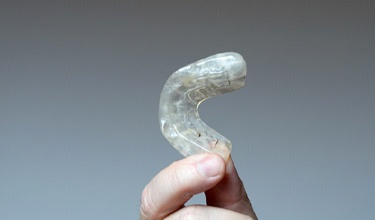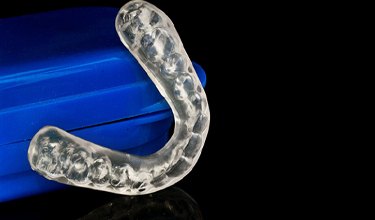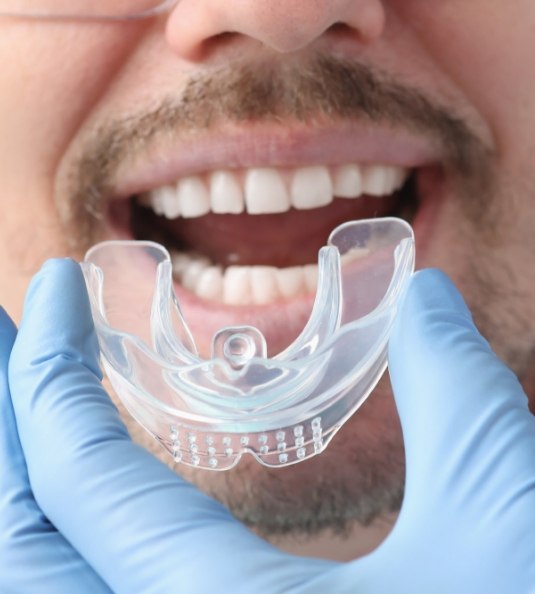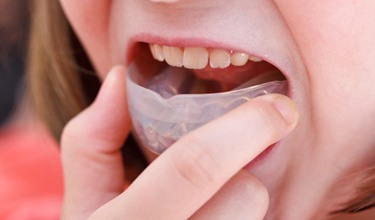Nightguards Carrollton
Better Protection Against Enamel Erosion
Even if you have the best at-home oral care routine possible, and you stay committed to routine dental checkups and cleanings, it won’t matter if you have an underlying habit that’s wreaking havoc on your tooth enamel. While your first thought might point to diet, Dr. Durga Devarakonda wants patients to keep bruxism in mind as well. With custom-made nightguards in Carrollton, you can counter-act your teeth grinding and clenching habit before it has a chance to cause permanent damage to your tooth enamel! Call us today to find out if you qualify.
Why Choose DD Family Dentistry of Carrollton for Nightguards?
- Custom Nightguards Created for Optimal Comfort
- We Treat Patients of All Ages
- Your PPO Dental Insurance is Welcome
What are Nightguards?

Nightguards are oral appliances designed to be worn while you sleep. They are used for mitigating the damage that would occur from chronic teeth grinding and clenching, also known as bruxism. This condition is far more common than people initially realize. In fact, you may be surprised during your next dental visit when your dentist tells you that your tooth enamel is beginning to erode as a result of the condition. Alternatively, if you begin to experience chronic jaw pain or teeth sensitivity, especially in the morning, you might have a teeth grinding and clenching habit.
Why Would You Need a Nightguard?

Once tooth enamel has broken down, either as a result of tooth decay, physical trauma, or in this case, enamel erosion, it does not regenerate. To maintain as much of the natural tooth enamel as possible, you’ll need to take preventive measures.
While bruxism can develop as a result of increased stress, it’s usually more common in patients who have an uneven bite or crooked teeth. When the bite is uneven, teeth are more likely to rub up against each other. It can also develop as a result of a jaw injury. Whatever the cause, a nightguard can effectively protect your smile and reduce symptoms that you may be currently experiencing.
What Types of Nightguards are There?

Nightguards actually have many different purposes depending on your symptoms. For example, if you have sleep apnea or TMJ disorder, a nightguard is considered a sufficient form of treatment, even if the symptoms you’re targeting require certain modifications to the oral appliance itself.
Furthermore, while nightguards can be bought over the counter, they won’t have the same level of protection you’d expect from a custom-made variety you’d get from our office. This is simply because store-bought solutions are mass-produced, meaning they won’t ever fit your mouth exactly nor stand the test of time. If you want optimal comfort and a long-term solution for your smile, custom-made solutions offer the best bang for your buck.
How Do You Take Care of a Nightguard?

Caring for a nightguard is hardly a difficult process. Before wearing your nightguard, always make sure to brush and floss beforehand. This prevents food debris, plaque, and excess bacteria from collecting onto the nightguard throughout the night. When it’s time to remove your nightguard in the morning, rinse it with water, then allow it to soak in a glass of very warm (not hot) water and place a denture cleaning tablet in the glass. The water will eventually turn blue and begin sanitizing the nightguard. Once the water turns clear, you can remove it from the soak and use a toothbrush to remove any loose food debris or plaque. Avoid using a hard-bristled toothbrush, as this can scratch your appliance.

